Iraqi Kurds 'prepared to draw own borders', Barzani warns Baghdad
- Published
Massoud Barzani spoke to the BBC
The president of Iraqi Kurdistan has signalled it will draw the borders of a future Kurdish state if Baghdad does not accept a vote for independence in a referendum due later this month.
Massoud Barzani told the BBC he wanted to reach an agreement with the central government if Kurds opted to secede.
Iraq's prime minister has rejected the referendum as unconstitutional.
Mr Barzani also warned the Kurds would fight any group that tried to change the "reality" in Kirkuk by force.
Kurdish Peshmerga forces have taken control of the oil-rich city, which has large Arab and Turkmen populations, and other areas claimed by Baghdad over the past three years while driving out the jihadist group Islamic State.
Shia militias have said they will not allow Kirkuk to be part of an independent Kurdistan.
Kurds are the fourth-largest ethnic group in the Middle East, but they have never obtained a permanent nation state.
In Iraq, where they make up an estimated 15% to 20% of the population of 37 million, Kurds faced decades of brutal repression by Arab-led governments before acquiring de facto autonomy following the 1991 Gulf War.
Three months ago, top officials and political parties in the Kurdistan Regional Government agreed to hold an advisory referendum on independence.
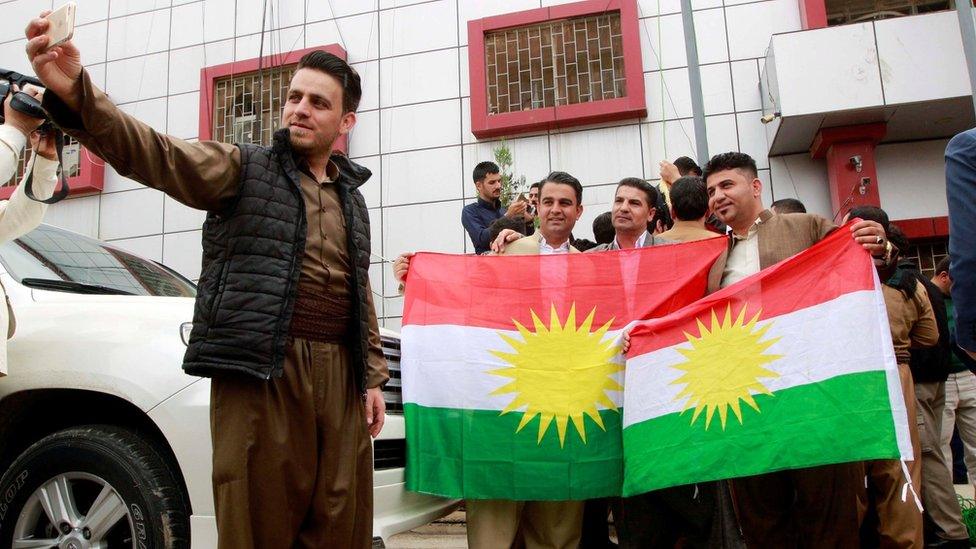
Kirkuk's Kurdish-led council recently rejected calls from Baghdad to lower Kurdish flags
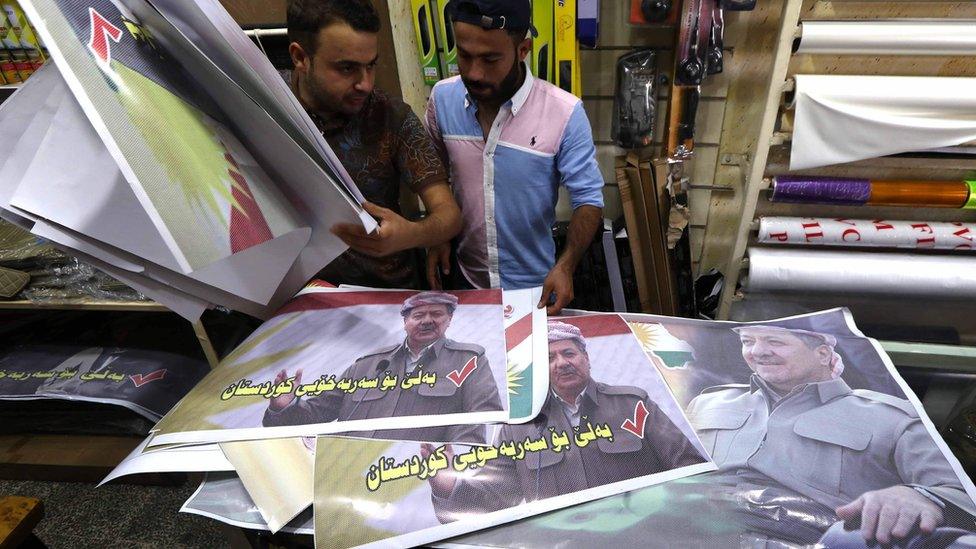
An expected "yes" vote will not trigger an automatic declaration of independence
Voting will take place on 25 September in the three provinces that make up the region - Dahuk, Irbil and Sulaimaniya - and "areas of Kurdistan outside the region's administration", including Kirkuk, Makhmour, Khanaqin and Sinjar.
Kurdish officials have said that an expected "yes" vote will not trigger an automatic declaration of independence, but rather strengthen their hand in lengthy negotiations on separation with the central government.
"This is the first step. This is the first time in history that people in Kurdistan will freely decide their future," Mr Barzani told the BBC.
"After that we will start talks with Baghdad, to reach an agreement over borders, water and oil," he added, before issuing an apparent warning to the central government: "We will take these steps but if they don't accept, that will be another matter."
The president rejected warnings from the US and UK that pursuing independence represented too great a risk when Iraq was still fighting a war against IS.

"When have we ever had stability and security in this region that we should be concerned about losing it? When was Iraq so united that we should be worried about breaking its unity? Those who are saying these, they are just looking for excuses to stop us."
Mr Barzani likewise dismissed criticism of decision to hold the referendum in Kirkuk.
"We don't say that Kirkuk only belongs to Kurds," he said. "Kirkuk should be a symbol of coexistence for all ethnicities. If the people of Kirkuk vote 'No' in this referendum we will respect their vote... but we don't accept that anyone can prevent us from holding a referendum there."
He also warned that "if any group wants to change the reality of Kirkuk using force, they should expect that every single Kurd will be ready to fight over it".
- Published11 September 2017
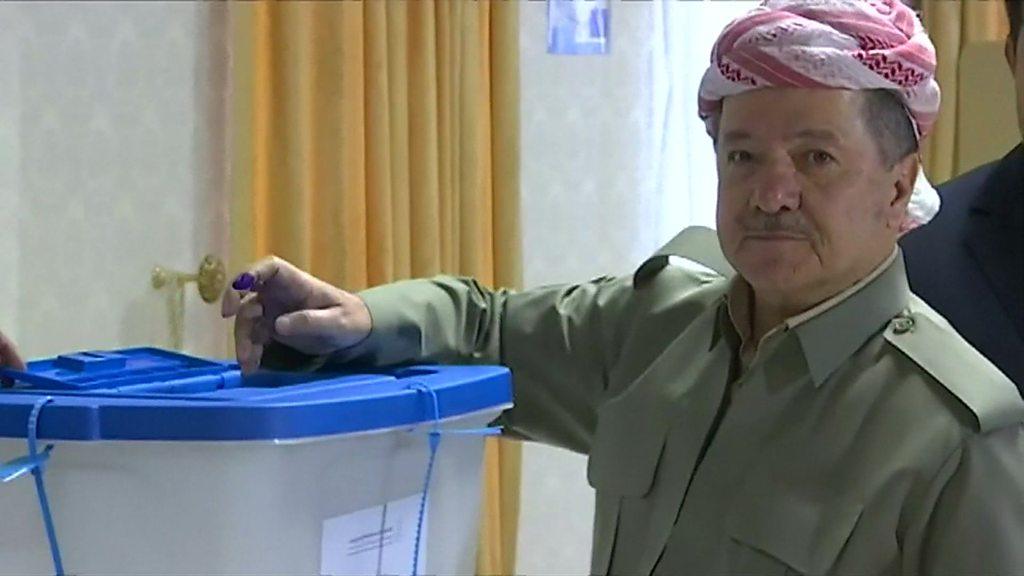
- Published16 May 2016
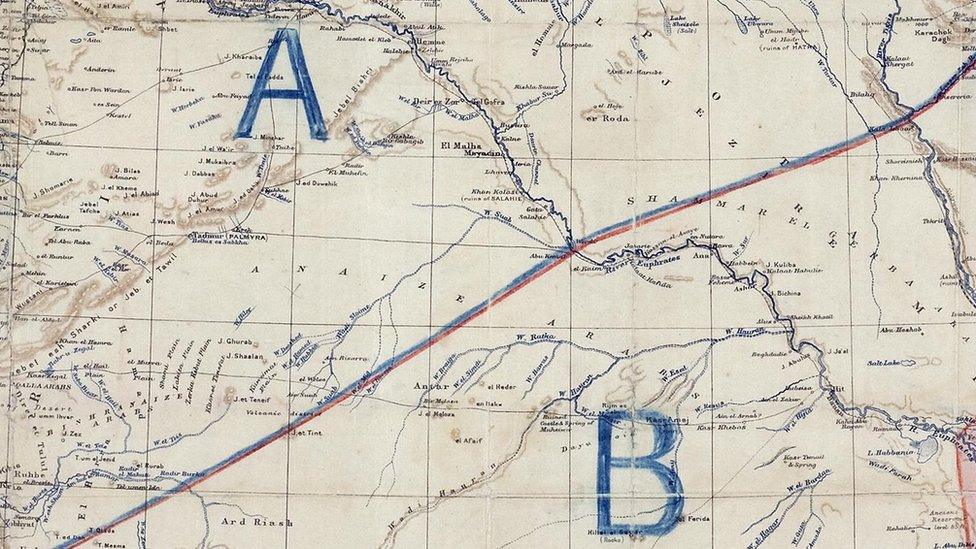
- Published13 June 2014
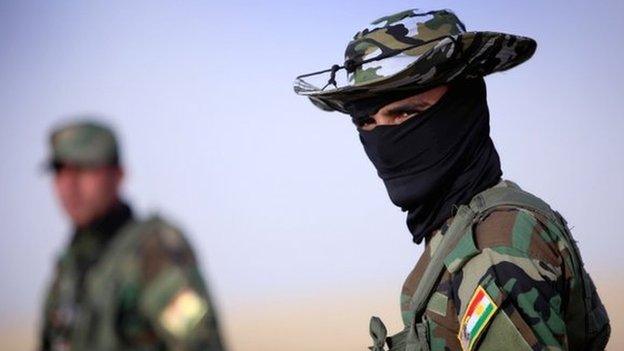
- Published15 October 2019
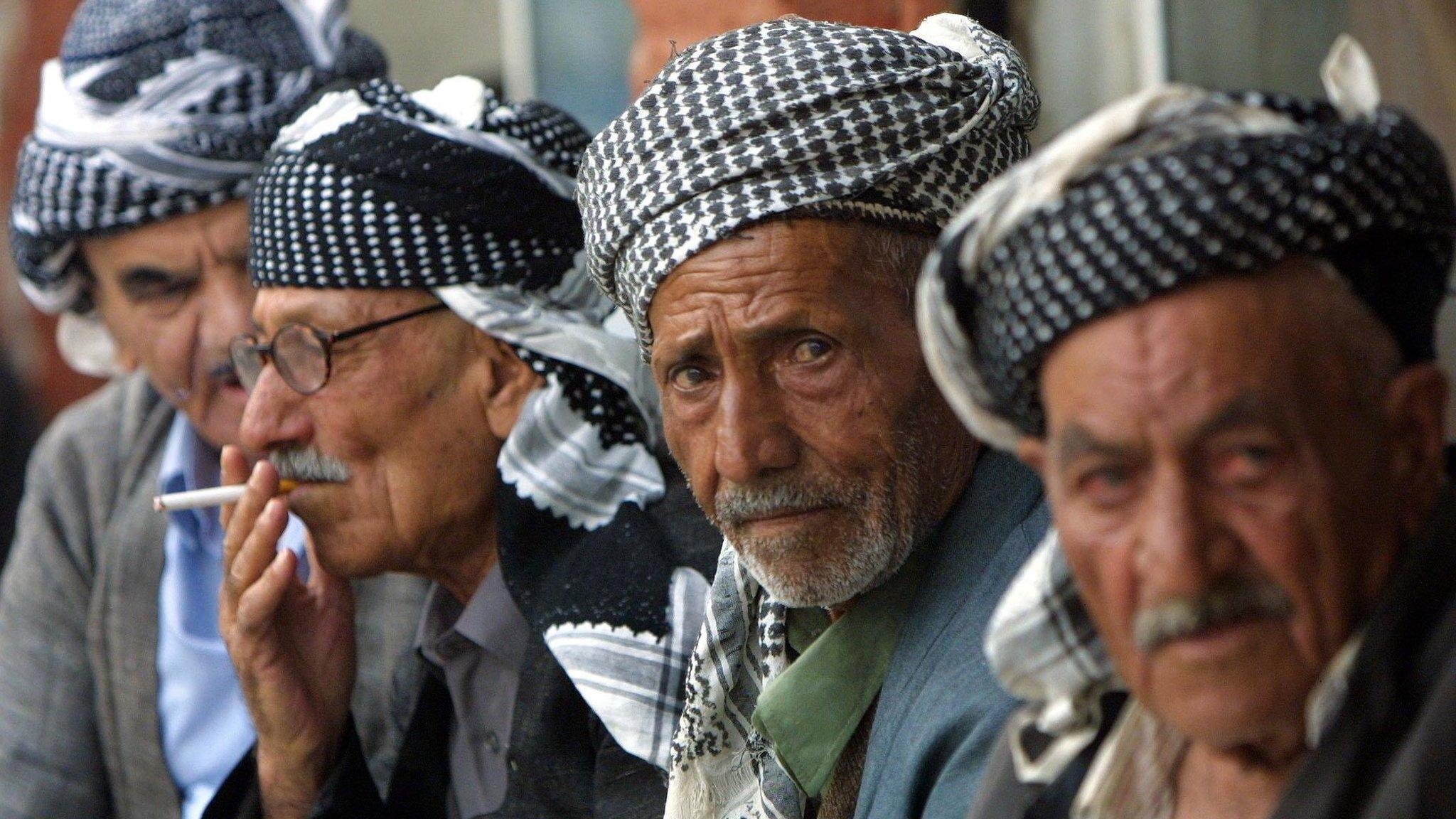
- Published31 October 2017